SUMMARY
This is AI generated summarization, which may have errors. For context, always refer to the full article.
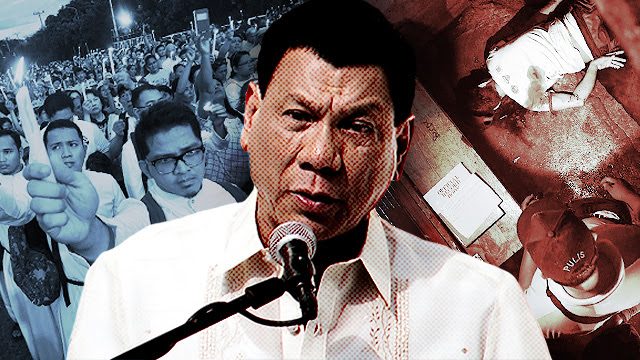
Whoever will be the country’s next president will be crucial in determining the fate of President Duterte and police officials facing investigation by the International Criminal Court (ICC). She or he can hasten or obstruct the probe: hasten it by providing information and evidence to the Prosecutor and rejoining the Court or obstruct it by refusing to cooperate.
Duterte has bought himself some time, temporarily basking in a reprieve from the drug war probe. The ICC Prosecutor, Karim Kahn, paused the investigation in November last year after the Philippine government requested a deferral because it said it was conducting its own investigations on the murder of thousands in the bloody campaign against drugs, considered a crime against humanity.
The Rome Statute allows states to ask for a suspension of an investigation – but there are rules to abide by. First, Article 18 (5) says that the “Prosecutor may request that the State concerned periodically inform the Prosecutor of the progress of its investigations and any subsequent prosecutions. States Parties shall respond to such requests without undue delay.”
Kahn has already made this clear. In a statement in November, he said that the Philippines “must provide information concerning its investigations…[which] must consist of tangible evidence, of probative value and a sufficient degree of specificity, demonstrating that concrete and progressive investigative steps have been or are currently being undertaken…”
Lawyers familiar with the process say a request for deferral involves having a dialogue between the Prosecutor and the Philippines’ justice department, which is to furnish information within certain timelines. We are not privy, however, to the justice department’s moves, if it is fulfilling the requirements of the ICC Prosecutor.
Second, the process has a time limit. Article 18 (3) says that “six months after the date of deferral or at any time when there has been a significant change of circumstances based on the State’s unwillingness or inability genuinely to carry out the investigation,” the Prosecutor shall start a review.
This may happen after our elections in May when the country will have a new president and a new team at the Department of Justice. By that time, we will know what the policy towards the ICC will be.
Presidential candidates and the ICC
Of the top five presidential candidates, only one is completely against working with the ICC to get to the bottom of the drug killings while another is half-hearted about it. Ferdinand “Bongbong” Marcos Jr has repeatedly said that he will not cooperate with the Court, in effect protecting Duterte from the ICC’s long arm of justice.
Isko Moreno, who previously said he would welcome the ICC’s probe, recently flip-flopped when he said that he would prefer that Duterte be tried by Philippine courts. The Manila mayor said that he would not hand over Duterte to the ICC should the latter be convicted. Moreno does not agree that Duterte should be made accountable to the ICC.
Vice President Leni Robredo, senators Manny Pacquiao and Panfilo Lacson share a similar stance but Robredo is the most unequivocal:
- Robredo will allow the ICC to conduct an investigation and will make the process transparent. She will push for the Philippines to re-join the ICC. (Duterte unilaterally pulled out of the ICC in 2018 and the withdrawal took effect a year later.)
- Lacson will support a return of the Philippines to the ICC depending on certain conditions which he did not elaborate.
- Pacquiao will welcome an ICC probe but with a caveat: as long as the ICC doesn’t “abuse our sovereignty.”
Afghan case
As the Philippine probe is temporarily halted, let’s look at the experience of Afghanistan, which requested a deferral in March 2020. It took about a year and a half before the Prosecutor decided to resume its probe, caused by changes in the country.
Kahn said in September 2021 that “…the change in the national authorities represent a significant change of circumstances… there is no longer the prospect of genuine and effective domestic investigations into Article 5 crimes [genocide, crimes against humanity, war crimes, crime of aggression] within Afghanistan.”
The new Afghan authorities, it turned out, were reluctant to investigate, obstructed justice and concealed evidence, according to the Public International Law and Policy Group (PILPG), a global law firm providing free legal assistance to parties involved in peace negotiations, drafting post-conflict constitutions, and war crimes prosecution.
As the PILPG wrote: “If some of the issues seen in the Afghanistan case emerge, the ICC might swiftly reinstate the investigation of crimes against humanity in the Philippines to ensure justice and protect victims and witnesses.”
Meantime, let’s hold on to our seats.
Add a comment
How does this make you feel?



![[Just Saying] Diminished impact of SC Trillanes decision and Trillanes’ remedy](https://www.rappler.com/tachyon/2024/04/Diminished-impact-of-SC-Trillanes-decision-and-remedy.jpg?resize=257%2C257&crop=273px%2C0px%2C720px%2C720px)
![[Rappler Investigates] Son of a gun!](https://www.rappler.com/tachyon/2024/03/newsletter-duterte-quiboloy.jpg?resize=257%2C257&crop=450px%2C0px%2C1080px%2C1080px)
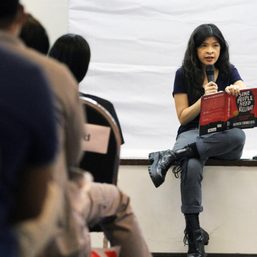

![[OPINION] ‘Some people need killing’](https://www.rappler.com/tachyon/2024/04/tl-some-people-need-killing-04172024.jpg?resize=257%2C257&crop_strategy=attention)
![[The Slingshot] Alden Delvo’s birthday](https://www.rappler.com/tachyon/2024/04/tl-alden-delvo-birthday.jpg?resize=257%2C257&crop=263px%2C0px%2C720px%2C720px)

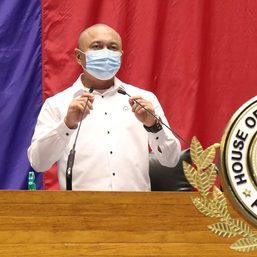
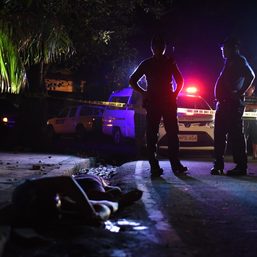
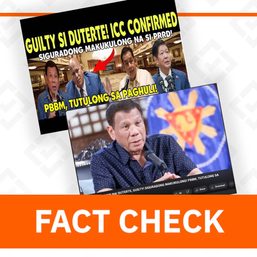

![[EDITORIAL] Ang low-intensity warfare ni Marcos kung saan attack dog na ang First Lady](https://www.rappler.com/tachyon/2024/04/animated-liza-marcos-sara-duterte-feud-carousel.jpg?resize=257%2C257&crop=294px%2C0px%2C720px%2C720px)
![[Newsstand] Duterte vs Marcos: A rift impossible to bridge, a wound impossible to heal](https://www.rappler.com/tachyon/2024/04/duterte-marcos-rift-apr-20-2024.jpg?resize=257%2C257&crop=278px%2C0px%2C720px%2C720px)

There are no comments yet. Add your comment to start the conversation.